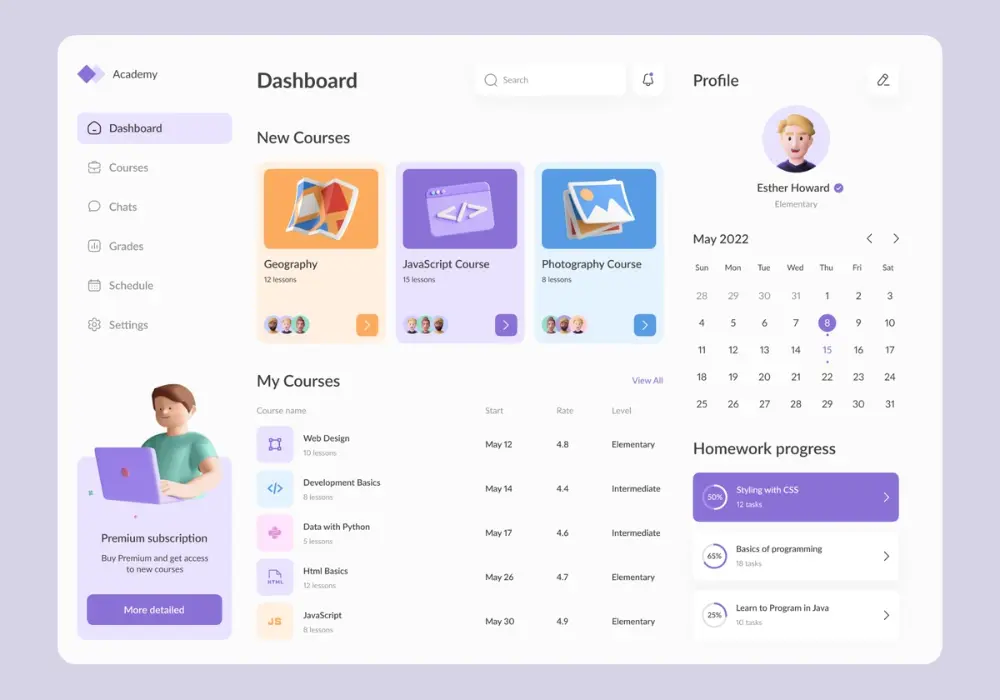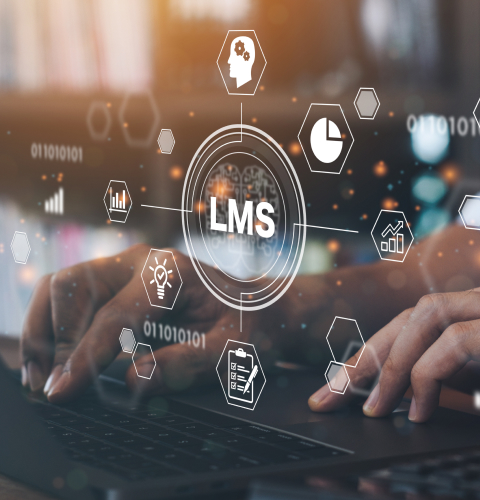LMS Singapore for Higher Education: Empowering Universities with Advanced Equipment
Wiki Article
Every Little Thing You Required to Learn About Choosing a Learning Administration System
Picking an appropriate Learning Monitoring System (LMS) is a crucial decision that can dramatically affect the performance of your training programs. It entails a thorough understanding of both your business demands and the crucial attributes readily available in various LMS choices. Variables such as individual interface, reporting abilities, and combination with existing systems must be meticulously assessed. As we explore the crucial elements of this process, it comes to be obvious that the appropriate choice can boost involvement and improve procedures. What stays to be uncovered is just how to browse the complexities of execution and assistance to make sure long lasting success.Comprehending Learning Monitoring Solution
A substantial number of companies today are recognizing the value of Understanding Management Equipment (LMS) as necessary tools for efficient training and education and learning. An LMS is a software application made to help with the management, documentation, tracking, reporting, and shipment of instructional training courses or training programs. By settling training campaigns into a centralized system, companies can improve procedures and boost learning experiences.LMS platforms sustain numerous discovering methodologies, including e-learning, mixed understanding, and instructor-led training. Their flexibility makes them appropriate for varied markets, from company training to academic institutions. With the usage of LMS, companies can deliver constant material, making sure that staff members and students have accessibility to the essential sources regardless of location.
Moreover, LMS solutions usually incorporate features that allow analytics and reporting, allowing organizations to assess the effectiveness of their training programs. This data-driven method equips organizations to make informed decisions regarding educational program modifications and source allowance - Singapore LMS. Inevitably, the adoption of an LMS can result in raised learner interaction, boosted retention rates, and enhanced overall efficiency, reaffirming its condition as an essential part of contemporary academic techniques
Key Features to Consider
When picking an Understanding Monitoring System, organizations should focus on specific attributes that line up with their training goals and customer requirements. Firstly, user-friendliness is necessary; a system with an user-friendly interface can boost learner engagement and lower the time needed for training managers.Another important feature is durable coverage and analytics abilities, permitting organizations to track student development, conclusion rates, and analysis results. This information is indispensable for refining training programs and showing ROI.
Furthermore, mobile compatibility is significantly essential as learners favor accessing content on various gadgets. A receptive LMS ensures that training is accessible anytime, anywhere, thereby boosting adaptability.
Content administration functionality is also crucial; the LMS should support different material kinds, including video clips, quizzes, and interactive modules, to provide to various knowing designs.

Analyzing Your Company's Needs
Determining a company's unique training demands is crucial for selecting the right Understanding Management System (LMS) To begin this evaluation, companies need to conduct a complete evaluation of their existing training landscape, including existing programs, participant demographics, and particular discovering goals. This procedure assists highlight toughness and gaps in current offerings, directing the choice of an LMS that lines up with business objectives.On top of that, take into consideration the kinds of content to be delivered, such as e-learning modules, compliance training, or combined understanding experiences. Understanding the preferred delivery methods and learning styles of employees is important for efficient training interaction. Organizations need to review their technical facilities, making sure compatibility with the prospective LMS.
It is also vital to entail vital stakeholders in this analysis process. Engaging instructors, IT team, and end-users can supply useful insights into their demands and choices. In addition, establish clear metrics for success, such as learner satisfaction and expertise retention, to assist measure the efficiency of the chosen LMS. By meticulously analyzing these aspects, organizations can make enlightened choices, ensuring their selected LMS efficiently meets their training needs and enhances overall efficiency.
Contrasting Various LMS Options
Many Learning Administration System (LMS) alternatives are available on the market, each offering distinctive functions and capabilities that cater to varied business needs. When comparing LMS options, organizations need to consider a number of critical elements. The individual interface and experience are extremely important; an intuitive design can substantially influence customer interaction and adoption rates.2nd, review the scalability of the LMS. As your company grows, the system ought to accommodate a boosting variety of customers and web content without compromising performance. Third, integration capabilities are crucial; the LMS must seamlessly connect with existing tools, such as HR systems, CRM platforms, and content collections, to enhance functionality.
Furthermore, think about the personalization choices offered. An LMS that enables tailored branding, program development, and reporting can better align with specific business objectives. Furthermore, prices designs vary widely, so it is vital to evaluate the total cost of ownership, consisting of licensing costs, upkeep, and assistance.

Implementation and Support Strategies
Successfully implementing a Learning Monitoring System (LMS) calls for a critical method that includes extensive planning and ongoing assistance. Begin by developing clear goals that align with your organization's academic goals. Engage key stakeholders and create a committed execution team to facilitate interaction and cooperation throughout the process.Next, pick a phased rollout method to reduce disturbance. Start with a pilot program including a smaller customer group, permitting for real-time comments and adjustments. Give detailed training to guarantee customers are comfortable with the LMS functions and functionalities. Singapore LMS. This step is crucial for cultivating user fostering and fulfillment.
Post-implementation assistance is equally crucial. Develop a robust assistance system that consists of helpdesk sources, individual guidebooks, and training sessions. On a regular basis gather comments from individuals to recognize LMS Singapore areas for improvement. Furthermore, take into consideration creating a neighborhood discussion forum for customers to share options and experiences.
Verdict
To conclude, picking an ideal Learning Management System necessitates a detailed examination of organizational demands and offered choices. Secret features, including user interface, reporting abilities, and integration potential, play an important function in improving the discovering experience. Additionally, a well-planned execution approach and recurring assistance are necessary for making the most of user complete satisfaction. By meticulously taking into consideration these aspects, organizations can guarantee effective training distribution and inevitably accomplish their educational objectives through the picked LMS.A considerable number of companies today are recognizing the worth of Knowing Monitoring Equipment (LMS) as necessary devices for effective training and education.In addition, LMS services often integrate attributes that make it possible for analytics and reporting, permitting organizations to evaluate the performance of their training programs.Identifying a company's one-of-a-kind training requirements is vital for selecting the ideal Learning Management System (LMS) By thoroughly assessing these elements, companies can make educated choices, ensuring their selected LMS properly fulfills their training needs and improves general efficiency.
By very carefully considering these elements, organizations can make sure reliable training delivery and ultimately achieve their academic purposes through the chosen LMS.
Report this wiki page